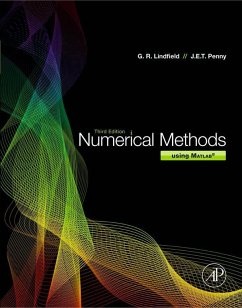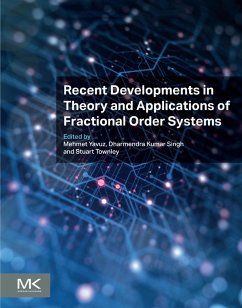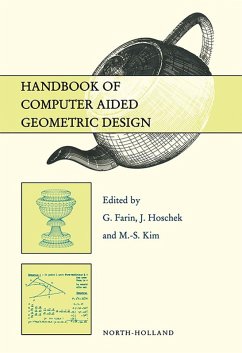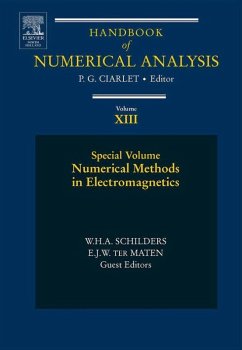
Fractional Difference, Differential Equations, and Inclusions (eBook, ePUB)
Analysis and Stability
Versandkostenfrei!
Sofort per Download lieferbar
116,95 €
inkl. MwSt.
Weitere Ausgaben:

PAYBACK Punkte
58 °P sammeln!
The field of fractional calculus (FC) is more than 300 years old, and it presumably stemmed from a question about a fractional-order derivative raised in communication between L'Hopital and Leibniz in the year 1695. This branch of mathematical analysis is regarded as the generalization of classical calculus, as it deals with the derivative and integral operators of fractional order. The tools of fractional calculus are found to be of great utility in improving the mathematical modeling of many natural phenomena and processes occurring in the areas of engineering, social, natural, and biomedica...
The field of fractional calculus (FC) is more than 300 years old, and it presumably stemmed from a question about a fractional-order derivative raised in communication between L'Hopital and Leibniz in the year 1695. This branch of mathematical analysis is regarded as the generalization of classical calculus, as it deals with the derivative and integral operators of fractional order. The tools of fractional calculus are found to be of great utility in improving the mathematical modeling of many natural phenomena and processes occurring in the areas of engineering, social, natural, and biomedical sciences. Fractional Difference, Differential Equations, and Inclusions: Analysis and Stability is devoted to the existence and stability (Ulam-Hyers-Rassias stability and asymptotic stability) of solutions for several classes of functional fractional difference equations and inclusions. Some equations include delay effects of finite, infinite, or state-dependent nature. Others are subject to impulsive effect which may be fixed or non-instantaneous. The tools used to establish the existence results for the proposed problems include fixed point theorems, densifiability techniques, monotone iterative technique, notions of Ulam stability, attractivity and the measure of non-compactness as well as the measure of weak noncompactness. All the abstract results are illustrated by examples in applied mathematics, engineering, biomedical, and other applied sciences. - Introduces notation, definitions, and foundational concepts of fractional q-calculus - Presents existence and attractivity results for a class of implicit fractional q-difference equations in Banach and Fréchet spaces - Focuses on the study of a class of coupled systems of Hilfer and Hilfer-Hadamard fractional differential equations
Dieser Download kann aus rechtlichen Gründen nur mit Rechnungsadresse in A, B, BG, CY, CZ, D, DK, EW, E, FIN, F, GR, HR, H, IRL, I, LT, L, LR, M, NL, PL, P, R, S, SLO, SK ausgeliefert werden.













